![https://adoptostaging.blob.core.windows.net/article/0gyjVosH50W0YvQoX-eomQ.png]()
Though the concept may sound refreshing and even groundbreaking to some, leaving them with an inspiration for a complete shift in how they hire, it remains slightly utopic and, frankly, biased. Therefore, in the following paragraphs, we elaborate on what is hiring for character and offer an alternative approach to hiring great talent for your organization.
Improve the efficiency of your in-house recruitment with TalentLyft
Our tool helps you set up various assessments for candidates in different stages of the hiring process for a more structured process! Talk to one of our product specialists and learn more.
Book a quick call What is hiring for a character?
It is essential to distinguish between attitude and character. Though many confuse the two, the truth is that mentality comes from character, and more importantly, attitude, unlike the character, can be faked during the interview process. As Jason Jones, Organizational Psychologist mentioned in his article for LinkedIn, punctuality, sensitivity, humility, and flexibility are personal traits that reflect character and significantly affect the organization's success and, ultimately, the organization.
As explained by Jones, these characteristics are no longer an arbitrary concept. They can be measured by observing a person's behavior and getting a better understanding of how they have behaved in certain situations in the past. He adds: "Using the character quality definitions helps managers better understand what to look for and how to assess candidates during an interview."
Sinek's similar concept of hiring candidates based on their attitudes seems slightly more troubling. As a part of his philosophy, the author mentioned getting to know the candidates as working professionals and as individuals in a less formal environment, such as grabbing a coffee and learning more about their personalities. He makes a comparison that recruitment is much like dating and recognizing if the candidate is a good match for your company environment. While, at first, it may sound like a great idea to see if you are a good match with the candidate when hanging out after work - this can easily lead to misconceptions about their competencies, leading to a bad hire.

Why won't hiring for a character work?
Hiring for character assumes that attitudes are much more important than skills. It goes from the assumption that attitudes as the constant something that cannot be trained have superiority over skills that can always be taught. But this theory doesn't have significant support in reality.
Here are the reasons why you should reconsider hiring for skills instead of attitudes:
Attitudes & character are hardly measured.
Attitudes can be faked.
Hiring for character leads to biased hiring decisions.
Learning new skills takes time and money.
Attitudes & character are hardly measured.
The first thing that authors who advocate hiring for character advise is to look into the company's needs and detect which characteristics they are looking for in candidates. But, how can one measure these concepts? Are you going to decide one's character based on their behavior out of the formal setting of an interview? And, how are you going to do that systematically?
There are so many questions about how you can measure the concepts that advocates of this approach suggest. Things like asking candidates about how they spend their free time or what they see as their biggest trait/flaw can only be used as icebreakers and potential indicators of red flags in some candidates. However, making truly informed hiring decisions that will predict a candidate's success in case of hiring cannot be made based on answers to these questions.
Attitudes can be faked.
This is an important one. We often see recruiters making the mistake of concluding that candidates are candid with them in everything they see or do when visiting the company for an interview. But, this cannot be further from the truth. Even the highly skilled candidates that should be sent to the next stage of the hiring process can fake attitudes. Candidates are not necessarily faking their attitudes because they are bad people or bad performers. The stress of the situation triggers pretty much everyone to adjust their behavior and sometimes answer to what they believe would be desirable behavior in the company. So, watch out - attitudes can be faked, and authentic characters cannot easily be seen during the selection process.
Hiring for character leads to biased hiring decisions.
One of the elements that most recruiters and HR teams are trying to eliminate (or at least reduce to a minimum) is making biased hiring decisions. Yet, hiring for a character can eliminate all those efforts all at once. When you think about it, judging someone based on their characteristics can easily lead to an Affinity bias. Affinity bias means we all subconsciously gravitate towards similar individuals in appearance, beliefs, and background.
Therefore, assessing one's character can be difficult for recruiters, especially when we know that evaluating these characteristics is highly subjective and doesn't have to be equally perceived by everyone on the hiring team.
Learning new skills takes time & money.
If you decide to hire for a character instead of skills, you might find yourself in financial trouble. Even though it may seem that people can be taught everything, this is only partially true. Everyone has different capacities for adopting new knowledge, and learning something from scratch (or at least the majority of the subject) and the process may take up a lot of time. Besides, if the challenge of learning new skills takes up a lot of time and effort, one's attitude can switch as the motivation decreases. So, several factors influence one's ability to learn. They cannot all be predicted in an interview if they showcase persistence from one of their previous experiences.
How to efficiently assess candidates' skills?
Hiring for a character can be a helpful tactic only as an addition to assessing candidates' skills and knowledge. In this case, you will have the best of both worlds - a new hire whose character fits within your team and a skilled professional ready to tackle business tasks. There are several things that should be done:
Create a structured & repeatable evaluation plan
Use scorecard
Use online assessments
Create a structured & repeatable evaluation plan
In the process of setting up a new job opening, make sure to create a structured evaluation plan that makes sense for the position you are hiring for. Decide which hard & soft skills you are looking for in your candidates, what are the definite NOs, and what are some good plusses candidates could have. All this information and the ways in which you decide to assess these skills should be formalized in a structured & repeatable process which will be the same for all candidates. Whether you will perform interviews or online assessments to test particular skills has to be predefined, and the process needs to be the same for all candidates applying for the same position.
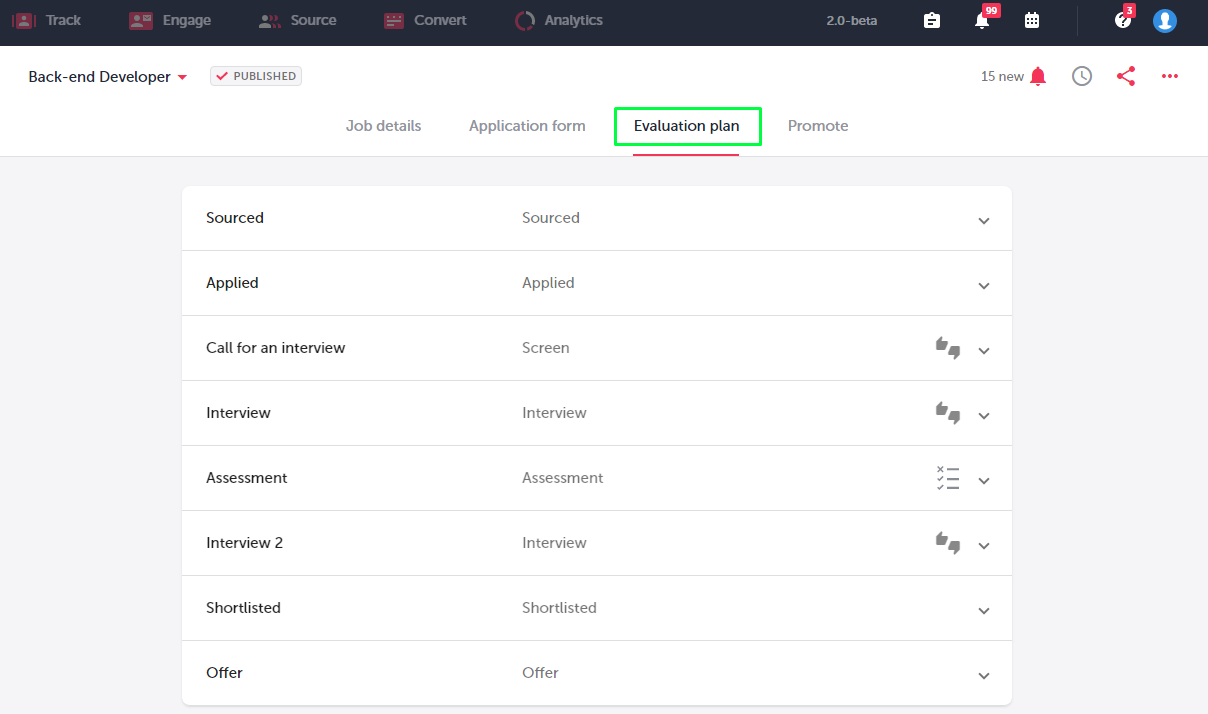
Evaluation plan in TalentLyft
Use scorecards
Scorecards are sets of questions used to assess candidates' skills, knowledge, or cultural fit at any stage of the selection process. They are most commonly used for interviews and initial screenings. Evaluating your candidates by the same questions or guidelines makes it easier for you to assess each candidate and, most importantly, makes their results comparable. The idea behind scorecards is to create a valuation system that will make sense to you and your colleagues even days after assessing the candidates and will allow you to make informed hiring decisions.
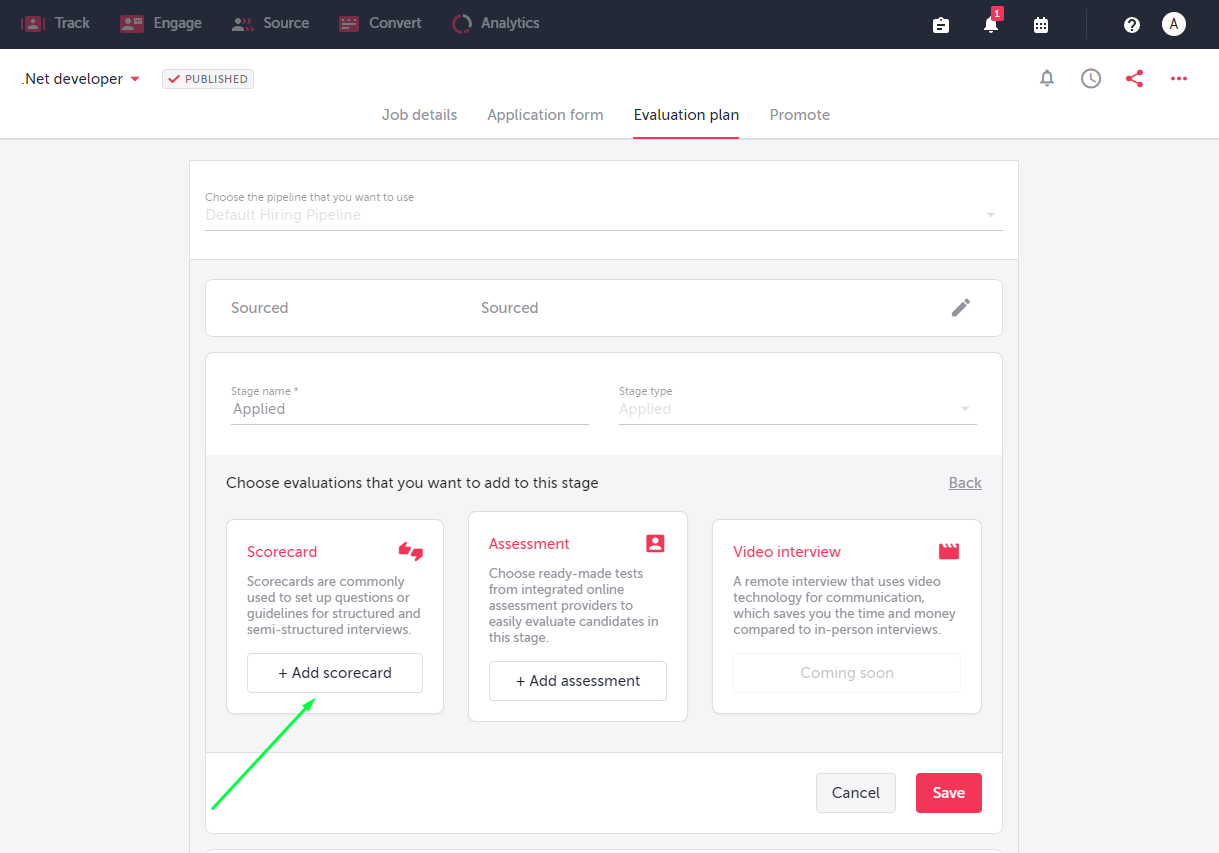
In your Evaluation plan, you can determine whether you prefer adding Scorecards or Assessments to a certain stage of the process.
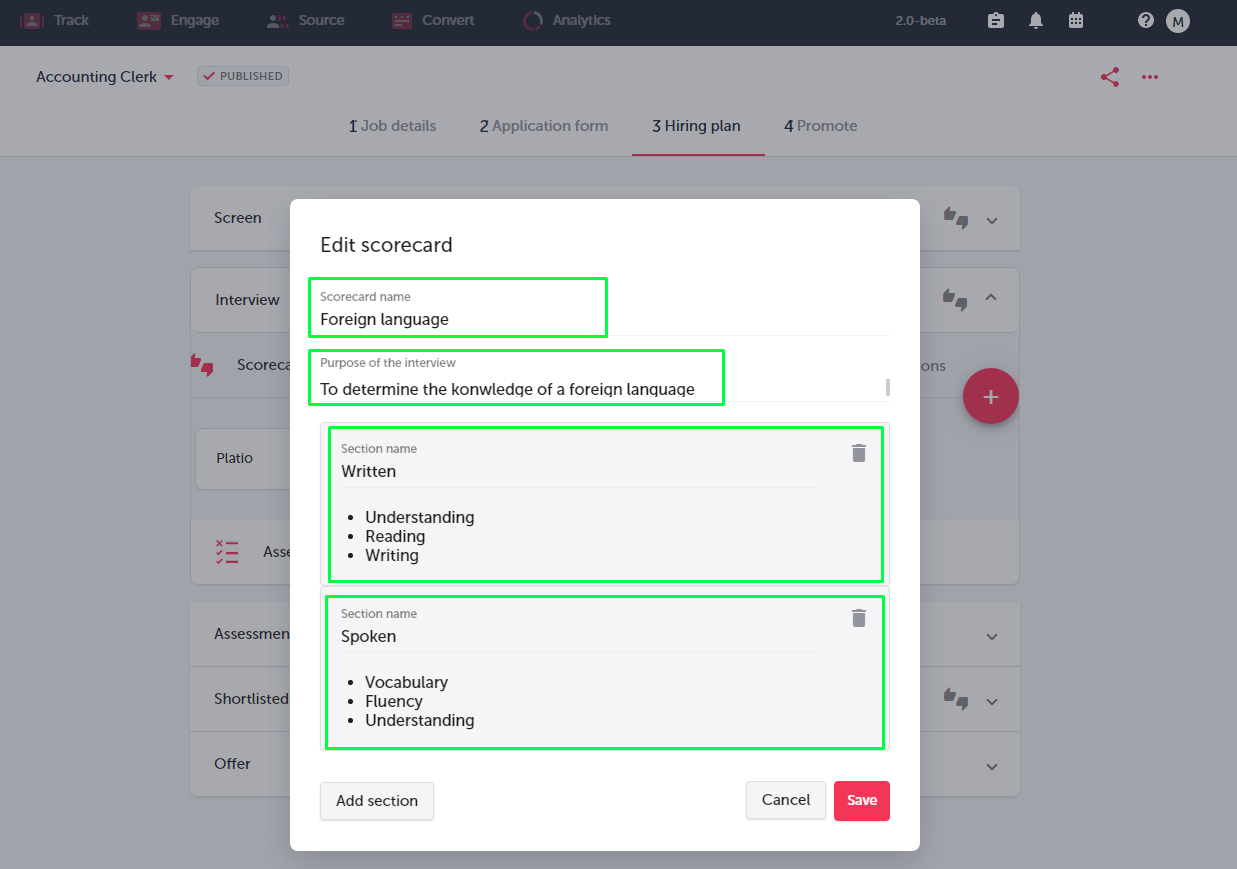
Scorecards in TalentLyft
Just think of job openings when you have 200 applicants and more than a dozen of them go through an interview. If the scoring process isn't properly set in place, you will soon have a mess among all your applicants, and it can quickly happen that you overlook some incredible talent. Therefore, introducing scorecards will make your hiring process more efficient and accurate!
Use online assessments
Assessments are pre-made online tests written and designed by assessment companies and vendors. They are designed to test the specific characteristics of your candidates.
For example, they can determine the level of respect for authority your candidate has, if they are better working in a team or alone, the level of organization skills, and so on. There is a range of online assessment providers specialized in testing candidates' personalities, ways of thinking, or specific skills ( such as knowledge of different programming languages or knowledge of SEO).
For example:
Kandi offers a range of tests written by experts in digital marketing, software development, content management, and business development.
Ingelnix offers customizable online assessments for more flexibility and efficiency in your hiring process. The tool helps you assess and ultimately hire the right fit for your organization.
Selekcija uses questionnaires and tests constructed with scientific psychometric methods and tested on thousands of candidates in selection processes for real jobs over the past few years.
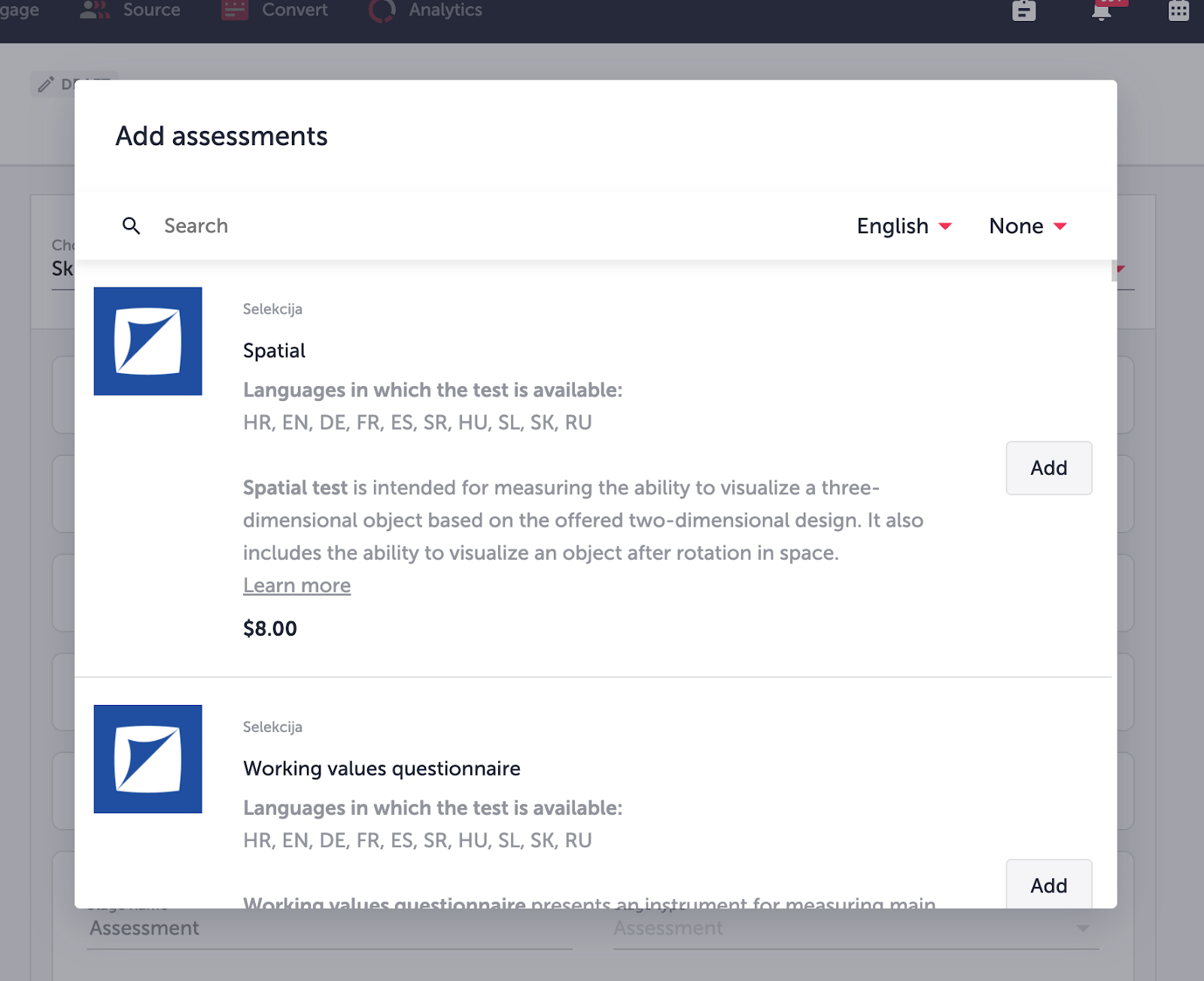
In TalentLyft you can easily pick and choose which assessment you would like to send to a candidate.
How can TalentLyft help you assess & hire the right candidates?
Create a structured evaluation plan in TalentLyft and decide whether you want to perform structured interviews with assigning scorecards or order online assessments from one of the renowned online selection platforms such as Kandio, Ingelix, or Selekcija! Improve the efficiency and accuracy of your hiring process by basing your decisions on informed knowledge instead of guesswork!
Hire highly skilled talent with TalentLyft
Book a quick call with one of our product specialists and get a free consultation to learn how our product can improve the efficiency and the quality of hire at your company!
See how it works Frequently asked questions
What does hiring for character involve?
Hiring for character focuses on assessing candidates based on their personal traits, attitudes, and mindset, rather than solely on their skills or experience.
Why might hiring for character not be a good idea?
Character traits can be hard to measure accurately and attitudes can be feigned during interviews, potentially leading to biased hiring decisions and overlooking essential skills.
How can attitudes and character traits be misleading in interviews?
Candidates may adjust their behavior or responses to align with perceived company values, which doesn't always reflect their true character or work attitude.
What should be considered alongside character in the hiring process?
A balanced approach combining character assessment with skill and knowledge evaluation is recommended to make well-rounded hiring decisions.
How can hiring for character lead to biased decisions?
Assessing character can introduce subjective biases, such as affinity bias, where recruiters subconsciously favor candidates with similar characteristics to their own.











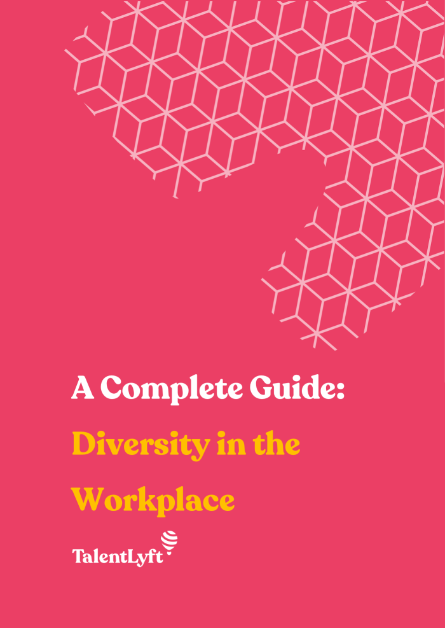
![Boolean Search for Recruiters [Actionable Guide]](https://adoptoprod.blob.core.windows.net/article/7wyu_xAg806Tm_lmFg71Rw.png)








